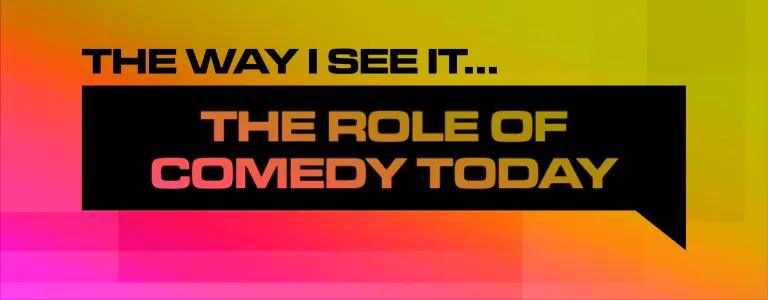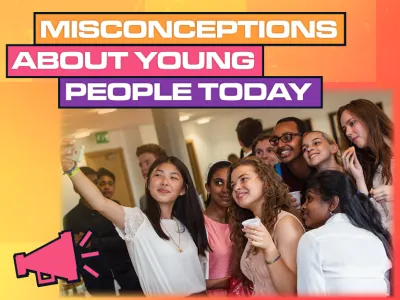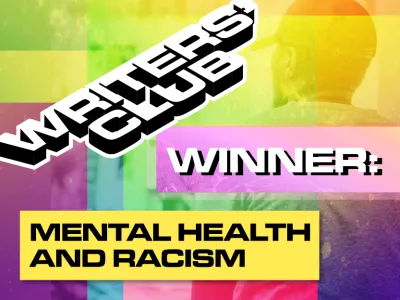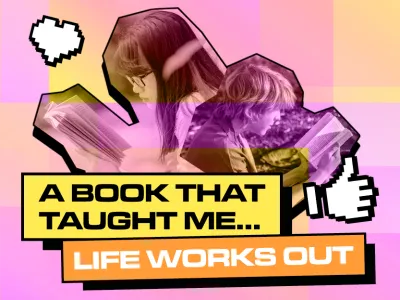
The Role Of Comedy Today
Include this article in your Skills Builder Journal. It could help you develop... 
They say you should never explain a joke, but to get to grips with what comedy really is, we’re going to have to. By definition, comedy is anything that is intentionally funny: from sitcoms to stand-up, plays to punchlines. It’s been part of the human experience for millennia, growing and adapting to different tastes and a modern sense of humour.
But, in our changing social climate where words have a bigger impact than ever before, it can be hard to figure out where comedy belongs. Do we really need it? What purpose does it serve? And what can we joke about?

That last question is more controversial but we can look to science for the first, more specifically to gelotology, the study of laughter. Scientists have found that laughing at something can improve circulation, release physical tension, and even boost your immune system. It makes your brain release endorphins which help us cope with pain and stress, and the extra oxygen you take in stimulates organs like the heart, potentially protecting against a heart attack. On top of all these health benefits, it also brings people together, strengthening social bonds and forming a closer community. So the answer is… we absolutely do need it!
The other two questions work as a double act. The purpose comedy serves depends on what we talk about, which barriers it overcomes and how the speaker creates a message.
Perhaps one of the most trending topics of all time is ‘what should comedians talk about?’. Hundreds of individuals have been wrapped up in this conversation, some more frequently than others. Ricky Gervais is commonly criticised for his confrontational style, but he argues that it’s important to distinguish the subject of a joke from its target and that nothing is off-limits. Others believe comedians should be more careful about distressing the audience.
Recently, the infamous Will Smith-Chris Rock collision stirred up plenty of conversations about how far is too far and when a joke stops being funny. It obliterated the internet for a few weeks as heated debates about who was right grew and memes comically twisted the situation. Someone even recreated the whole event with Oscar from Shark Tale and Marty from Madagascar (characters the two celebrities have voiced), adding to the ripple-effect caused by one joke.
When it seems that every award show has adopted the sometimes awkward humour of insults, it can be hard to tell when we’re laughing with someone or at them. If we look at the idea of ‘gallows humour’ - jokes that make light of a serious or unpleasant subject - it’s a bit clearer if you can figure out which side of the noose you’re sitting on… ‘If the person on the gallows makes a grim joke, that's gallows humour. If someone in the crowd makes a joke, that's part of the execution.’ But should we make the joke at all?
Psychologists have found that humour is a valuable way to process and cope with the craziness of our lives. Scott Weems, a cognitive neuroscientist and author of Ha! The Science of When We Laugh and Why, calls it a “response to conflict and confusion in our brain”. We use comedy to make sense of strange and difficult subjects so it’s natural that some jokes make us squirm while we’re laughing.
The general consensus seems to be that, instead of assigning subjects to a naughty-or-nice list Santa would be proud of, we should focus on the delivery of a joke and its intended message. It’s important to look at who’s saying it, how they experience the topic in real life, and who (if anyone) is being harmed by it. This can help us determine if we’re a mob targeting others or simply a group of humans laughing at ourselves.
Because, although comedy is first and foremost trying to make you smile, it can be a path to social change. Comedians can sneak past their audience’s preconceived ideas about something and “plant a little worm in their brains” (as Josie Long puts it) in a way no politician or activist can. They have a great opportunity if they choose to take it, to challenge some of society’s most contested issues and change people’s opinions.

Josie has frequently talked about humour as “a way to be useful for other people”. It can break through taboos, force us to sympathise with new perspectives and hold people in power accountable. It also validates our experiences and makes us more connected as individuals. There are always jokes which reinforce negative stereotypes and contribute to prejudice, which we should speak up about. But on the other hand, comedy can actively work against bigotry, having a wider impact on the world around us.
Or it can make us laugh!
Whether we look to comedy as a vital tool for social justice or an easy escape from everyday life, the bottom line is treating each other with kindness. We need to think about the impact of our words and the possibilities we unearth if we share our smiles with one another. Both laughter and kindness are an intrinsic part of being human, and they’ll stick around for as long as we do.




